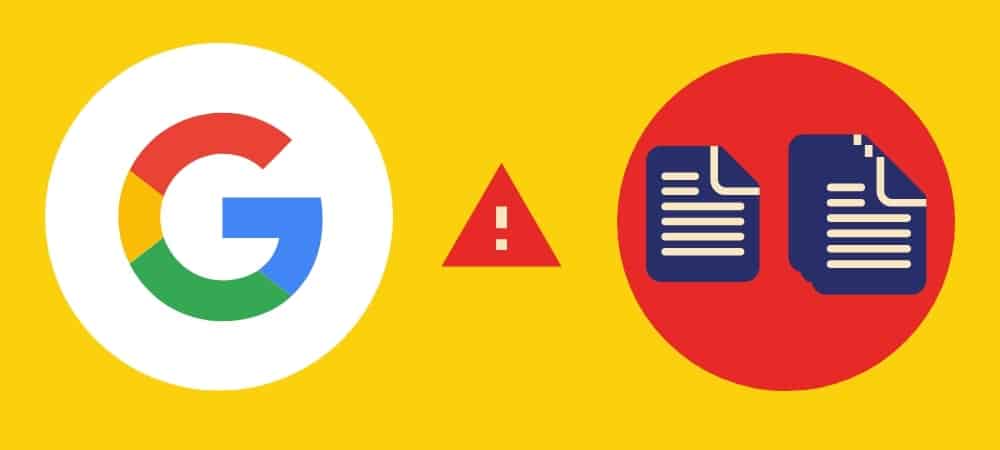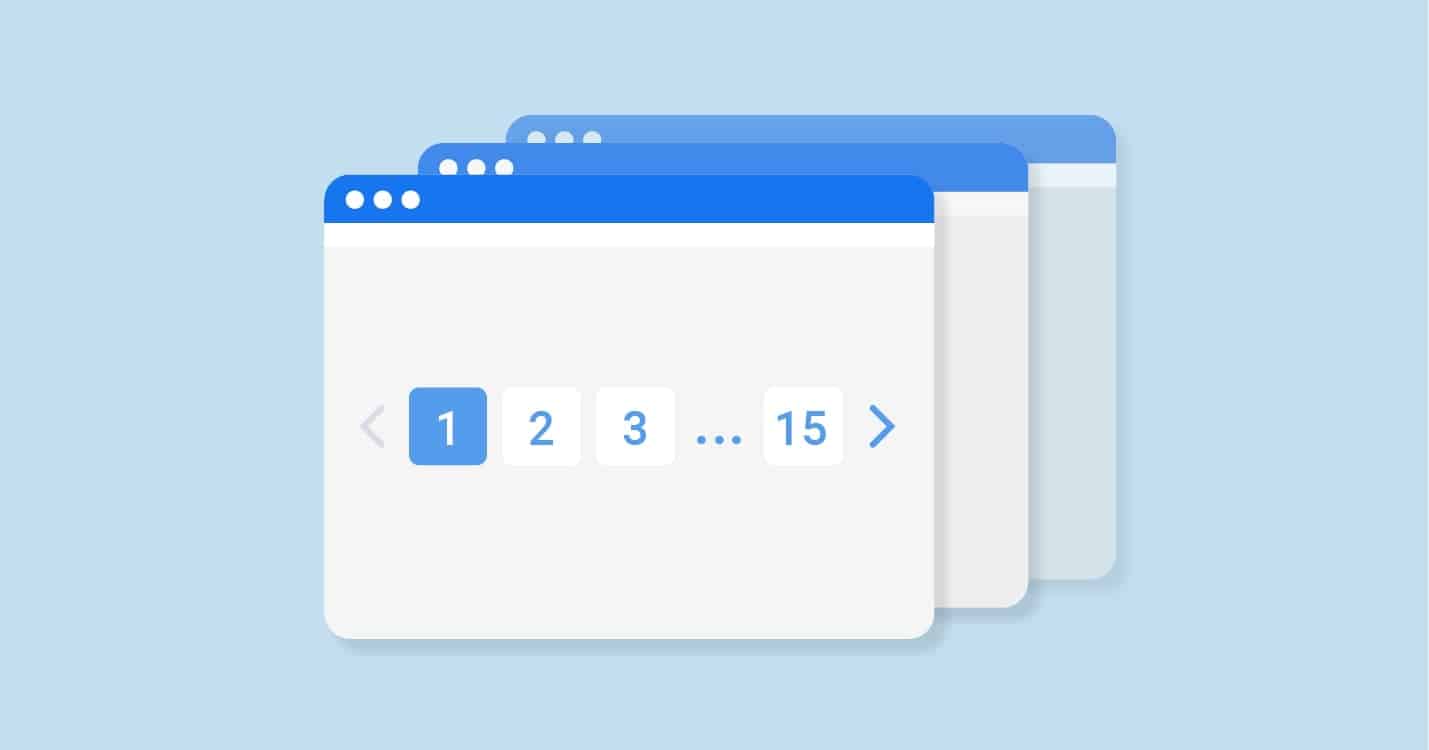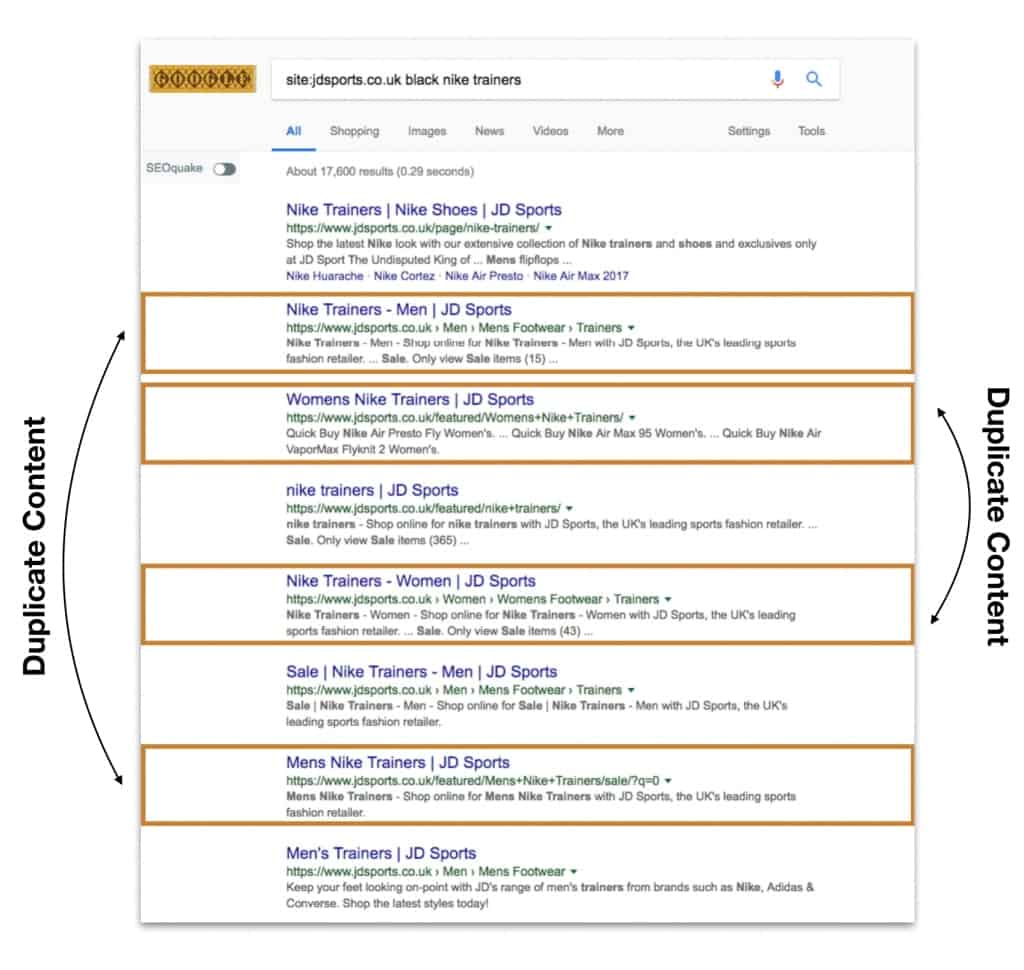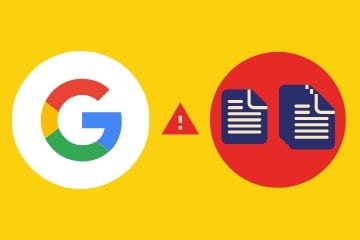
Duplicate content penalties as a topic have been discussed numerous times on the web in various blogs discussions and conversations. A lot of people still think that Google penalizes website ranking for duplicate content. They are more afraid of duplicate content penalties than they are of spammy links. In this blog, we will bust the myths regarding the way Google treats duplicate content.
According to Google, copy content is defined as a block of content that is common or extremely similar within or across various domains. Google as a search engine, filters these duplicates and shows you the most relevant content. This leads many people to believe that copy content has been penalized by the search engine.
Fun Fact: Add ‘&filter=0’ to your URL and you will be able to see all the unfiltered results on the Google search engine.
What are Google’s thoughts on Duplicate Content Penalties?
First and foremost, lets clear up the air around the copy content Penalty,
Googlers understand that the users want variety in the search results. They do not want to be shown the content from a single website again and again. What Google does in this scenario is that it consolidates its search results and shows only the most relevant version to the users.
Google does not penalize you because of Duplicate Content. It only filters the Duplicate Content.
Google has gone as far as to design algorithms to prevent duplicate content from spamming your search feed. These algorithms place the various similar search results in clusters and only the “best” URL in the cluster is displayed on your search feed. Google has also made it clear that duplicate content is not penalized at least not until Google finds that it has been used to manipulate search results.
The worst thing that can happen from the filtering is that a less desirable result shows up in your search feed. They can affect your Search Engine Optimization efforts and draw down your rankings. This is also the most important reason for which people so vary of duplicate content.
Causes & Solutions of Duplicate Content Filtering:
1) Consolidate Duplicate URLs

One of the most common reasons for duplicate content is the existence of multiple URLs to the same website. Your website might have an HTTP and HTTPS version or a WWW and NON-WWW version and this can lead to the creation of multiple URL links.
To solve the problem created by these Multiple URLs we must conduct a 301 redirect to the most relevant URL. By doing so Google will choose the particular URL from the cluster.
2) Alternate Page Versions

Enterprises now have to create different types of websites that can function on different devices. These alternate page versions of the website like the mobile version or the AMP (Accelerated Mobile Pages) version are all having the same content as the desktop version of the page. If not managed properly all these different versions of the same website are duplicate content clusters for Google.
To solve this problem, we have the option of using REL=” alternate” tag. This tag is used to consolidate the alternate versions of the pages and direct them to one main page. With this Google understands that all these different versions of the same website are in fact one and the same and ignores the duplicate content.
<link rel=”alternate” href=”http://www.theimpulsedigital.com” >
3) Paginations

Pagination occurs very frequently on websites which have a products page or a store option in them. This happens when you have more than one page dedicated to this particular option. Now suppose your products list goes on for 3 pages. In an ideal situation when a customer goes from page 1 to page 2 there should be no changes in the URL but here the URL changes. Google thus recognizes them as two different pages or duplicate content.
To solve this problem, we must define the particular URL parameters and let Google know how we wish to treat these particular URL parameters. We can then ensure that Google recognizes all the product pages as a single URL and this avoids copy duplication.
4) Faceted Navigation Issue

Faceted navigation issues often occur in websites that show a variety of options and filters for the same product. For example, let’s take an E-commerce website where you search for a product ‘X’. Now you can filter this search based on various parameters and options like color, size, availability, etc. With every filter you make the website will generate a different URL for the same product. We can thus understand that the amount of duplicate content here will be very large.
For such websites to function, it is important that they deal with the faceted navigation issues effectively. In this case, we will use canonical tags so that you can consolidate the URLs and command Google to pick up signals to the preferred URLs. By doing so one can effectively navigate between filters on your website without a change in the URLs and prevent the generation of duplicate content.
5) Country/Language Versions

Another important cause of content duplication can also be the creation of country and language pages or perhaps pages pertaining to the local audience. Websites frequently need to create such URLs to pertain to their customer requirements. These pages essentially have the same content but only in a different language or perhaps for a different country.
To prevent these different URLs from being treated as duplicate content we must use the REL=” alternate” tag to consolidate the alternate versions of the pages.
<link rel=”alternate” href=”http://www.theimpulsedigital.com” >
Conclusion

There are a few reasons you could face penalties from Google such as scraping or spamming content but most probably the majority problems would be coming from the website itself. It is thus important that you take preventive measures like not disallowing in robots.txt, not performing nofollow and noindex for your website.
It is necessary to put an end to the various myths and developments about duplicate content penalties and to understand the nuances and methods of content writing and Search engine optimization in Google. Keep in mind that although Google as a search engine does not penalize us in any special manner for copy content. Such content can increase our crawler budget and have a negative impact on our website authority.
Thus as a content marketing service, we suggest that you use quality content on your website and avoid content duplication.
Would you like to read more on this? Please write to us at [email protected] or connect to us on Facebook / Twitter / or Instagram.



It’ s very informative blog, thanks for sharing.